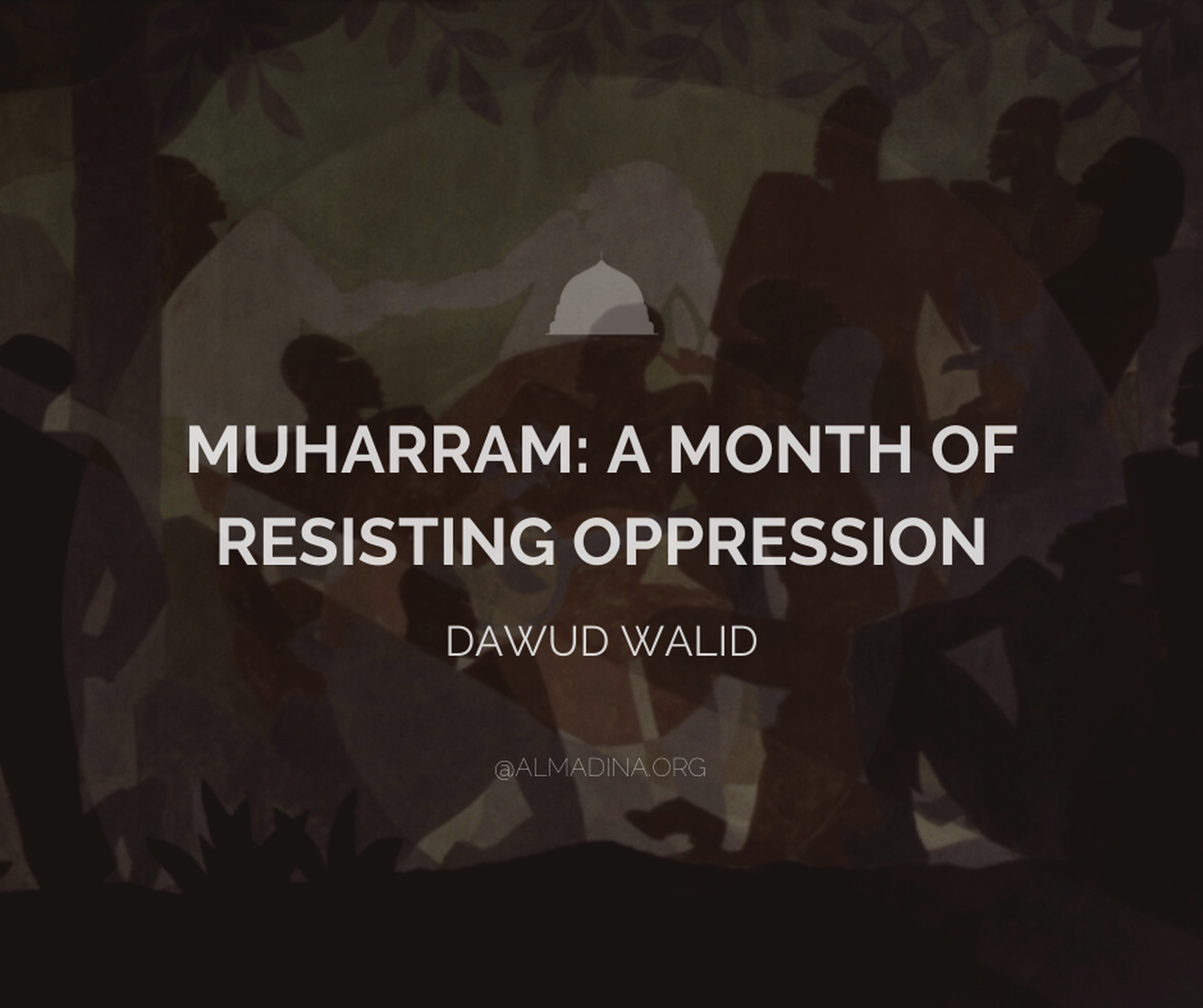Muharram: A Month of Resisting Oppression

Originally published in October 2016
Surely those who disbelieve in the signs of Allah kill the prophets without right and those who enjoin justice among the people, so give them tidings of a painful punishment. (Surah Aali ‘Imran, Ayah 21)
Muharram, which is the first month on the Islamic calendar, holds special importance in Islam, it being one of the four sacred months. Within Islamic tradition, there are several historical events which many Muslims connect to the importance of the month. Two of these events in particular contain a vast amount of lessons—the time of the salvation from the Children of Israel from Pharaoh and the martyrdom of Imam al-Husayn and his companions (may Allah be pleased with them) on the Day of Ashura.
Pharaoh is the most unjust human mentioned in the Qur’an. He arrogantly stated to the people of his time that “I am your lord, the most high.” (Surah an-Nazi’at, Ayah 79). He enslaved the Children of Israel, who were not of his nation and ethnic group, and treated them extremely cruel, including murdering their sons. He even ordered the beheading of his own wife Asiya (may Allah be pleased with her) due to her non-agreement with his oppression. Pharaoh, thus, is a representation of the worst type of state power. Allah (Mighty & Sublime) out of His immeasurable mercy provided the Children of Israel with prophetic leadership through Musa and Harun (peace be upon them) to guide them out of Pharaoh’s oppression.
The Children of Israel were delivered from slavery and Pharaoh was destroyed despite their disobedience of prophetic leadership. Even after their deliverance, however, the Children of Israel’s profound ingratitude of Allah’s favor caused them to wander miserably for forty years before making it to the promise land, a walk that should not have taken even a month to make.
Centuries later, after the death of Prophet Muhammad ﷺ, the believers in monotheism faced the dilemma of the leadership of Yazid bin Mu’awiyah. Yazid, a Muslim who was a known wine drinker and neglected making the five daily prayers, sought to make the remaining companions of the Prophet ﷺ and the successive generation pledge allegiance to him despite his lack of Islamic qualifications. When Imam al-Husayn, who the Prophet ﷺ called one of the two “leaders of the youth of the People of Paradise,” practiced non-violent civil disobedience by not pledging allegiance, he was met by Yazid’s general Ubaydullah bin Ziyad who led an army against the family of the Prophet ﷺ. Imam al-Husayn along with other Hashimites and his supporters were slaughtered in Karbala, Iraq.
Prior to the massacre of Imam al-Husayn on Ashura, the People of Kufah in Iraq called him to come there, promising to pledge allegiance and provide protection to the Prophet’s family. The Kufans, however, broke their word which they gave to Imam al-Husayn and sold out their covenant. The betrayal of the Kufans in fact was collusion with unjust state power that led to the bloodshed of Imam al-Husayn. This then led to the massacre of the people of al-Madinah the following year who refused to give allegiance to Yazid, which in turn then led to the attack against the followers of the Prophet’s companion Abdullah bin az-Zubayr at al-Masjid al-Haram that led to the Kaaba being burned down.
The insubordination of the Children of Israel and the People of Kufah as well as the silence of many Muslims in the face of Yazid’s tyranny holds contemporary relevance. In times of calamities and injustices, the incumbency of following Allah’s guidance is weighty. The unintended consequences of disobedience in times of uncomfortable conditions have the potential of adding to our miseries, not softening them. Seeking to be accepted by corrupt principalities or copying others in their ways as the Children of Israel did directly after crossing the Red Sea are recipes for greater problems. Moreover, silence in the face of oppression is passive facilitation of its ability to further spread.
The first ten days of Muharram, the Day of Ashura being the most important, should be used as a time for fasting and supplication. Reading the Qur’an regarding the challenges of Musa with his people and reading the biography of Imam al-Husayn are also noble endeavors to take part in. In all of these, we will hopefully be able to draw closer to what is pleasing to Allah (Mighty & Sublime), which includes a renewed consciousness towards obeying Him, following Prophetic leadership and not being agents of oppression, be it aiding and abetting our own oppression or letting oppression spread through our silence.
Faith & Spirituality Related Articles

5 Practical Steps To Get You Ready for Ramadan
As Ramadan is less than a month away, we might feel we often haven't done enough to prepare for it. Here are 5 things we can do right now during Shaban to make sure that we get the most out of Ramadan. The Prophet (Peace & Blessings upon Him & His Family) supplicated,” O Allah give us the blessings of Shaban and give us the treasure of Ramadan.”

Hajj at Home: Kindling the Spirit of Arafah
Even if we are not on Hajj this year, our situation is no different. We navigate through the complexities of our daily life, immersed in the never-ending responsibilities of work and family, inundated with the intrusions of technology and social media into every minute of our lives, moving from place to place and idea to idea.
